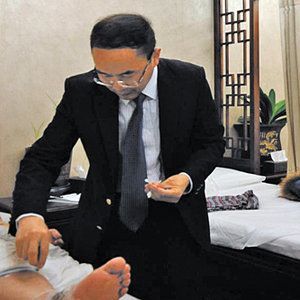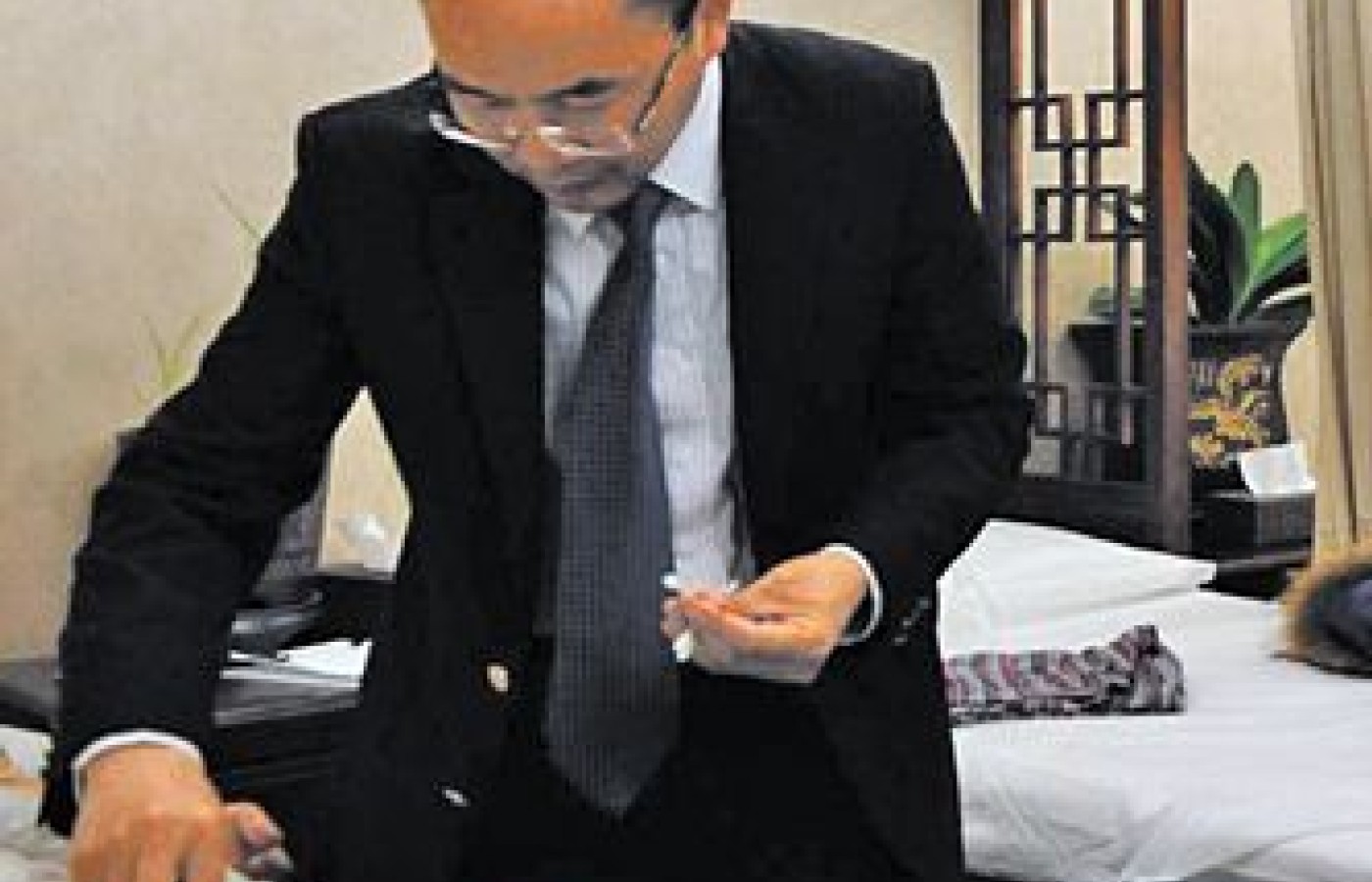The most important relationship I seek to nurture in the treatment room is the one a patient has with their own body. We live in a culture that teaches us to override pain, defer to outside authority, and push through discomfort. Patients often arrive hoping I can “fix” them, but the truth is, we can’t do the work for them. We can offer guidance, insight and support, but healing requires their full participation.
Weaving Eastern & Western Medicine Together: Q&A with Beijing's Dr. Kezhen Zhang
Translated by Lily Kuo
Dr. Kezhen Zhang M.D., is currently the founder and president of Beijing Taijitang Traditional Chinese Medicine Hospital. In May, he came to the United States for the very first time to observe acupuncture school students and also to share his knowledge about the importance of "space" in the body from one of his four books, The Theory of Physiological Spaces. In his popular book, Zhang discusses the critical role space in the body in relation to disease progression and how it is the other half of the human body that deserves attention from the medical community. As an M.D. and acupuncturist, Zhang decided to visit the United States this past May to teach others about the modalities practiced at his hospital and many ancient theories such as the Huang Di Nei Jing he feels should be reemphasized in modern acupuncture.
Zhang said he feels Traditional Chinese Medicine should be merged with modern science to bring revolutionary changes to health. Some of those changes can be made with a close analysis of a flawed medical model, looking at the insufficiencies in medical theory and many ignored natural factors that play a role in patient's overall health. During his trip, Zhang took time out to answer a few questions from Acupuncture Today about his thoughts on acupuncture care in the United States and China as well as his beliefs about good health.
AT: You started out as an M.D., how did you get into TCM?
KZ: My great grandfather and grandfather were both TCM doctors, I grew around this and had a lot of knowledge about how it all works. I also noticed that a lot of diseases were cured through needles and herbs. When I went to medical school I noticed a lot illnesses, were not able to be cured by Western doctors to my disappointment. I realized that in Western medicine a lot of doctors didn't really know the cause of the illness, what I learned from Western medicine is that they were only trying to cure the symptoms and there was always side effects to the medications they gave out. When I was young I would see how my grandfather would cure people and they would be always get well.
AT: You have talked extensively about the No. 1 flaw of Western medicine is lack of understanding, can you explain?
KZ: Number one: There is a flawed understanding of the structure of the human body. We ignore the space. Besides all of the solid organs in our system, there is a lot of space in between that gets ignored. A great example is our blood vessels and the space is where the blood flows, it is also in our digestive systems there is a lot of space in that system as well.

AT: Why is it important to acknowledge this space?
KZ: Its not only part of a system that we don't talk about, there is a lot of importance to that space. There is a lot of diseases and illnesses that develop when there is a blockage in that space in the body, so space should never be ignored. If we know the system and the theory of space then we can prevent illness. This is also the best conduit for Western medicine to understand this space because it exists in both Eastern and Western medicine. This has been recognized by one of the most prominent associations in Beijing. A lot of the theory of acupuncture is also derived from the theory of space.
AT: Lets talk about the flaws of medical science you talk about. What are some of the biggest flaws you see in medical science?
KZ: Let's talk about why people get sick? When someone gets sick it affects all aspects of life. The evolution of the medical model as you can see in 1977 we began including the psychological and social self and looking into how those factors affect us. But what is missing in this model is that we ignored nature, temperature, dampness - all of these affect our health. Nature plays a role, and if we ignore that we won't know what the cause is. If we ignore that there is a long list of problems, if we don't include nature then our treatment plan would also be wrong. The cause of all of these diseases often is coldness and dampness. If we don't know the cause we can then treat the illness properly. The model I use is the Life Society Nature model. I have used this medical model to treat my patients and they have recovered very quickly, especially with arthritis patients with no side effects.
AT: What needs to be done in TCM world for patients to be treated successfully?
KZ: All doctors should use this model (Life Society Nature model). There is only one purpose for doctors and its to make people healthy. Western medicine should look at this and use it as a reference.
AT: You have a certain way of treating patients with acupuncture mainly through the limbs, can you talk about that?
KZ: The method is called Yuan Tung acupuncture method. I consider it more effective way for treatment, its also safer and its simplifies the method. I will needle from the elbows to the fingers and then from the knee down. I pick the points that are most effective. You can see results the first time. Its not as painful and its easier for acupuncturists. This method is currently being used in China. This method also helps us teach the patient to use acupressure to manage their symptoms. We can treat asthma, problems of the digestive system and even ulcers and arthritis.
AT: What brought you to the US for the first time?
KZ: I wanted to share 20 years of practice and the flaws that I have discovered. I found that with this experience and success I wanted to share the safety aspect and the knowledge. Hopefully patients wont take so much medication in the future by knowing this information and they will also be able to alleviate side effects.
The practice of acupuncture really helps life and health, in the U.S. we call it complementary – that's not the case – it can treat medical problems.
AT: In your opinion, how far do acupuncturists have to be to be on the same level as they are in the East? What do you feel can be improved?
KZ: I am very impressed with the level of knowledge of the acupuncture students here. Acupuncture in China has been established for thousands of years, here in the U.S. it has only been established not too long so to see the students it is very impressive as well as the teachers. Impressed with the way acupuncture is headed here. The students here are not Chinese it is also very awesome to see their enthusiasm, with passion and knowledge this is how acupuncture can advance in the US. In any medical model it is the result you are looking at.
It is very important that your patients have faith in you, we shouldn't say that Western medicine is better or Eastern is better it should always be about the patient getting well.



